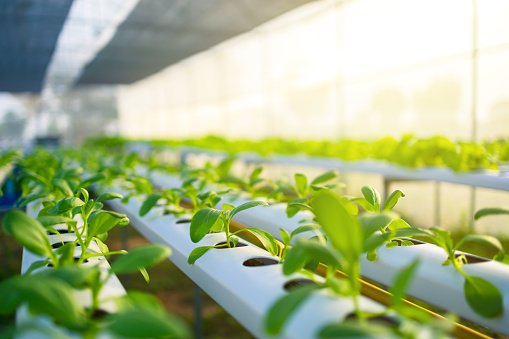Introduction.
Agriculture is a vital part of Nigeria’s economy, and with the growing demand for fresh and healthy food, hydroponics is emerging as a game-changer.
Hydroponics is a method of growing plants without soil, using nutrient-rich water solutions. It’s efficient, uses less space, and is perfect for urban areas where land is scarce.
Starting a hydroponics business can be a rewarding venture, both financially and environmentally, especially in a country like Nigeria with its growing population and need for innovative farming solutions.
If you’re thinking about getting into this field, let’s break down everything you need to know. By the end of this article, you’ll have a clear idea of how to begin, the costs involved, and the potential benefits.
Why Hydroponics?
Nigeria is facing challenges in agriculture, from limited farmland in cities to erratic weather patterns. Hydroponics solves many of these problems:
- Space-saving: You can grow crops vertically, which means more produce in a smaller area.
- Water efficiency: Hydroponics uses up to 90% less water than traditional farming.
- Year-round farming: Since it’s usually done indoors, weather isn’t an issue.
- Faster growth: Plants grow 30-50% faster because they get all the nutrients directly.
- High-quality produce: The controlled environment ensures cleaner, fresher crops with fewer pests and diseases.
With these benefits, hydroponics isn’t just a farming method; it’s a solution to some of Nigeria’s agricultural challenges.
How Do I Start a Hydroponics Business In Nigeria?
Step 1: Understand the Business
Before jumping in, it’s essential to understand the basics of hydroponics. Learn how it works and decide what kind of crops you want to grow.
Vegetables like lettuce, spinach, tomatoes, and herbs are popular because they grow fast and are in high demand.
You’ll also need to think about your target market. Will you sell directly to consumers, supply to supermarkets, or target restaurants and hotels? Understanding your customers will guide your business strategy.
Step 2: Create a Plan
A good business plan helps you organize your thoughts and secure funding if needed. Your plan should include:
- Startup costs: How much money do you need for equipment, seeds, and space?
- Marketing strategy: How will you attract buyers?
- Location: Will you operate from your backyard, a warehouse, or a commercial space?
- Scaling options: If things go well, how will you expand?
Researching similar businesses in Nigeria can also help you understand what works and what doesn’t.
Step 3: Set Up Your Hydroponics System
There are different types of hydroponic systems, and choosing the right one depends on your budget and goals. Here are a few common ones:
- Nutrient Film Technique (NFT): Plants are placed in sloped channels, and nutrient-rich water flows over the roots.
- Deep Water Culture (DWC): Roots are submerged in a nutrient solution while air pumps provide oxygen.
- Drip System: Water and nutrients are dripped directly onto the plant roots.
- Aeroponics: Roots are suspended in air and misted with nutrients.
Once you’ve chosen a system, you’ll need:
- Grow trays or pipes: To hold your plants.
- Nutrient solution: A mix of water and essential plant nutrients.
- Water pumps and tanks: For circulation.
- Grow lights: If you’re growing indoors or in low-light conditions.
- Monitoring tools: To check pH, temperature, and nutrient levels.
Step 4: Choose the Right Crops
The success of your business depends on the crops you grow. Start with vegetables and herbs that are easy to grow and have a ready market. Here are some options:
- Lettuce: Highly demanded by restaurants and supermarkets.
- Basil, mint, and parsley: Popular herbs with consistent demand.
- Tomatoes and cucumbers: Slightly more challenging but very profitable.
- Strawberries: A niche market but lucrative if done right.
Experiment with different crops to find what works best in your system and market.
Step 5: Find a Market
Once your system is set up and you’re growing crops, the next step is selling them. You’ll need to market your produce effectively. Here are some ideas:
- Farmers’ markets: Great for connecting with customers and building relationships.
- Supermarkets: Partner with stores that prioritize fresh and organic produce.
- Restaurants and hotels: Many high-end establishments are looking for premium, locally-sourced ingredients.
- Online sales: You can use social media or e-commerce platforms to reach a wider audience.
Focus on promoting the quality and freshness of your produce. Many customers are willing to pay a premium for clean, pesticide-free food.
Step 6: Manage Costs and Profits
Starting a hydroponics business isn’t cheap, but it can be profitable. Initial costs might include:
- System setup: ₦200,000 to ₦1,000,000, depending on the scale.
- Seeds and nutrients: Around ₦50,000 to ₦100,000.
- Electricity: For lights and pumps, this will vary based on location.
- Labor: If you hire workers to help with planting and maintenance.
Once your system is running, operational costs are relatively low. With the right crops, you could see profits within a few months.
Challenges You Might Face
Every business has its hurdles, and hydroponics is no exception. Here are some common challenges and tips to overcome them:
- High initial costs: Start small and scale as your business grows.
- Technical knowledge: Take online courses or workshops to build your skills.
- Power supply issues: Consider alternative energy sources like solar panels.
- Marketing struggles: Build a strong online presence and network with potential buyers.
FAQs
1. Do I need a lot of space to start hydroponics?
No, you can start in a small area like a backyard or even indoors with the right setup.
2. Is hydroponics profitable in Nigeria?
Yes, with the increasing demand for fresh produce and limited farmland in cities, hydroponics has great potential for profit.
3. How much does it cost to start?
It depends on the scale, but you can start small with around ₦200,000 and grow from there.
4. What crops grow best in hydroponics?
Leafy greens like lettuce and herbs like basil are ideal for beginners. They grow quickly and have a ready market.
5. Do I need any special permits?
Check local regulations, but most small-scale hydroponics businesses don’t require extensive licensing.
Conclusion
Starting a hydroponics business in Nigeria is a smart move for anyone looking to combine innovation with agriculture.
It’s an exciting field with endless opportunities to grow fresh, healthy food while making a good profit.
The process might seem daunting at first, but with the right knowledge and a solid plan, it’s entirely achievable.
What’s stopping you from exploring this innovative farming method? If you had the chance to grow fresh produce without the usual limitations, what would you start with? Let’s talk in the comments!





GIPHY App Key not set. Please check settings